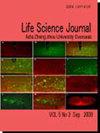Co constructing National Identity in the Era of Identity Chaos
引用次数: 0
Abstract
At cognitive level, preliminary idea of nation and existence of a national group is essential to have a sense of national identity. For adolescents, evolving concept of social groups and possible affiliations with them starts during this period. Factors such as process of socialisation, schooling and exposure to media determines how an adolescent conceptualises the nation and reflects attachmentwith it. As adolescents are considered as the future citizens, this study aimed at tapping their perceptual understanding of nation. This study was conducted with volunteer adolescent students from senior secondary sections of four Delhi based school. They wrote essays on Indian national identity organised according to cue questions, given beforehand. Based on legibility and content appropriateness, 130 essays were selected for further grounded theory analysis. National identity was defined using references from native cultural constituents, such as norms, heritage, traditions, customs, and social values. Identity derived from nation was positive and filled with pride when contents were about patriotism and multiculturalism. However, sharp comments on perceived inadequacy of government were supported with appalling cases of disharmony. The expressions elucidating national identity were described more on the basis of external events than self-references. A possible inference may be drawn that adolescents’ experienceswere in formative stage and hence were restricted to terminologies acquired from popular media.身份混沌时代的国家身份共建
在认知层面上,对民族和民族群体存在的初步认识是产生民族认同感的必要条件。对于青少年来说,社会群体的概念和可能与他们的关系的演变始于这一时期。社会化过程、学校教育和接触媒体等因素决定了青少年如何概念化国家并反映对国家的依恋。由于青少年被视为未来的公民,本研究旨在挖掘他们对国家的感性理解。这项研究是对德里四所学校高中部的青少年志愿者学生进行的。他们根据事先提出的提示问题撰写了关于印度民族身份的文章。基于易读性和内容适当性,选择130篇论文进行进一步的理论分析。民族认同是通过参考当地文化成分来定义的,如规范、遗产、传统、习俗和社会价值观。当内容涉及爱国主义和多元文化时,源自国家的身份是积极的,充满自豪感。然而,对政府不足的尖锐评论得到了骇人听闻的不和谐案例的支持。阐明民族身份的表述更多地是基于外部事件而非自我参照。可以得出一个可能的推论,即青少年的经历处于形成阶段,因此仅限于从流行媒体获得的术语。
本文章由计算机程序翻译,如有差异,请以英文原文为准。
求助全文
约1分钟内获得全文
求助全文
来源期刊
自引率
0.00%
发文量
0
审稿时长
2-4 weeks
期刊介绍:
Life Science Journal, the Acta Zhengzhou University Oversea Version, is an international journal with the purpose to enhance our natural and scientific knowledge dissemination in the world under the free opinion/idea publishing principle. The journal is calling for papers from all the world. All the valuable papers or reports that are related to life sciences - in their broadest sense - are welcome. Other academic articles that are only certain relevant but are of high quality will also be considered and published. Papers submitted could be reviews, objective descriptions, research reports, opinions/debates, news, letters, and other types of writings. All submitted manuscripts will be sent for external peer review and processed the editorial work. After the peer review, the journal will make the best efforts to publish the accepted valuable articles as soon as possible. Let''s work together to disseminate our research results and our opinions/ideas.

 求助内容:
求助内容: 应助结果提醒方式:
应助结果提醒方式:


